Authors and Illustrators
-
Tine Hribar
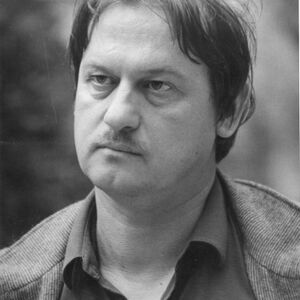
The academician prof. dr. Tine Hribar was born on January 28, 1941, in Goričica near Ihan. He graduated in 1964 from the Ljubljana Faculty of Arts, and received his PhD in 1968 in Zagreb. He was elected an assistant professor at the Ljubljana university in 1971. He taught until 1975, when he had to give up teaching under orders given by the Central Committee of the Communist Union of Slovenia. He picked up teaching again in 1992 – after the Demos coalition had won the elections –, when he set up two new courses, Phenomenology and Philosophy of Religion, at the Faculty of Arts as a full professor at it. He was elected a regular member of the Slovenian Academy of Sciences and Arts in 2001. He has published over 30 books, 7 of them concerning religion. He had been editor of the Tribuna newspaper, and of Nova revija and Phainomena journals.
He was named personality of the year by the Delo daily’s editorial board in 2003; was, together with wife Spomenka Hribar, distinguished by the president of the Republic of Slovenia with a Golden Order for Services in 2008; and was granted the title of a deserving professor by the University of Ljubljana in 2009.
-
Tomaž Mastnak

Tomaž Mastnak (1953) is a sociologist, philosopher, and historian of European political thought. Prior to his retirement, he was a senior researcher at the Research Centre of the Slovenian Academy of Sciences and Arts, and had been a visiting scholar at a number of European and American universities. Until he was recently “cancelled” due to his critical views, he had for decades been a regular newspaper columnist, commenting on Slovenian and international politics from the perspective of political theory. In the 1980s, he was an important player in the democratic movement in Slovenia.
-
Tomislav Vignjević

Tomislav Vignjević (1962) is a Senior Research Fellow at the Institute for Historical Studies at the Science and Research Centre (ZRS) in Koper, Slovenia. Prior to that, he was Senior Curator at the National Gallery of Slovenia, Associate Professor at the Faculty of Humanities, University of Primorska and a lecturer at the Academy of Fine Arts and Design, University of Ljubljana. Vignjević’s main research area is late medieval, Renaissance, and modern art.
-
Uroš Prah

Uroš Prah is a poet, editor, and translator. He pub- lished three poetry collections: Čezse polzeči. (“Glid- ing over Themselves”, 2012), the hardly translatable Tišima (one attempt was “Phush”, 2015), and Udor (“Landslide”, 2019). His German investigative long poem Nostra Silva was awarded the Austrian Exil Poetry Award, and was shortlisted for the Simon Jenko and the Veronika Poetry awards. His poetry and essays have been published in Argentina, Aus- tria, Croatia, the Czech Republic, Germany, Italy, Romania, Montenegro, Serbia, Slovakia, and the USA. In recent years he was a resident writer in New York, Bucharest, Graz (Austria), and Larisa (Greece). In 2008 he co-founded the Ljubljana-based literary magazine ID- IOT, which he co-edited until 2016, and was the program director of Literodrom, the International Festival for Developing Literary Practices at the Cankar Hall in Ljublja- na. He is currently based in Vienna.
-
Veronika Brvar
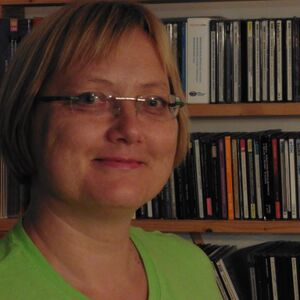
Veronika Brvar, a graduate in musicology, has been actively present on the Slovenian musical scene for several decades. She had been the director of Radio Slovenia’s classical music programme for a number of years, having been elected into the expert committee of the European Broadcasting Union four times during that time. She had been the director of the programme division of the Ljubljana Festival, and currently works as the president and art director of the Glasbena matica Music Society of Ljubljana, and as the editor-in-chief of the music magazine Glasna, published by the Musical Youth of Slovenia. Her abundant international experience in programme formation and art direction is reflected in numerous successful editions of festivals, including the Gledanica, Echos and Tenso international festivals, while the Bells Concert within the 1997 Month of Culture, which she co-initiated with the Spanish composer Llorenç Barber, has gone down as an exceptional event by her. She has collaborated with central cultural institutions of Slovenia as a contributor covering music, and has participated in three TV Slovenia’s documentaries as their screenwriter: Let Music Bring Fresh Air into the City; Velvet Cantilene, i.e. a portrait of the violinist Dejan Bravničar, and a portrait of the composer Igor Švara.
As the president and art director of Glasbena matica, i.e. the oldest Slovenian music society, she, through her programme and other aspects of her work, has extended and enhanced its quality year by year, its music groups having been ever more esteemed on Slovenia’s musical scene with their innovative approaches, their events, and successful coproductions.
-
Vesna Lemaić
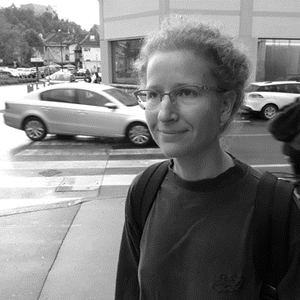
Vesna Lemaić (1981) graduated from Comparative Literature. She introduced herself as a writer in 2008, with her first book Popularne zgodbe (Popular Stories). In 2010, the novel Odlagališče (Landfill) was published, followed in 2014 by Kokoška in ptiči (A Chicken and Birds) and, in 2018, the book of short stories Dobrodošli (Welcome). For Radio Slovenia, she wrote the audio play Podpotnik (Subtrotter). One of her stories was included into the anthology Best European Fiction. Her work has received several awards, including the Slovenian Book Fair Award, the Fabula Award for the best book of short stories and the Golden Bird Award for literature. Lemaić conducts writing workshops for the young and experimental workshops that focus on group writing. For more than five years, she has also participated in organizing the Living Literature Festival in Ljubljana.
-
Vesna Liponik
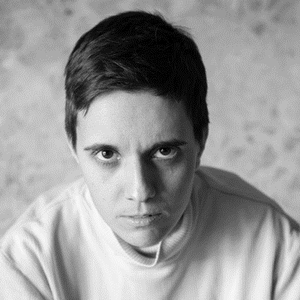
Vesna Liponik (1993) is a postgraduate student of Comparative Literature and Literary Theory and Slovenian Language at the Faculty of Arts in Ljublja- na. Her work has been published in several literary magazines, she participated in festivals, conferences and done several readings in Slovenia and abroad. Some of her texts have been translated into Serbian, German, Hungarian and English. Her first poetry collection roko razje (eats away the hand) was pub- lished in 2019 by Škuc-Lambda and nominated for the Critical Sieve award, Veronika award and Best
Debut award. She is currently working on her second book.
-
Vesna Radovanovič
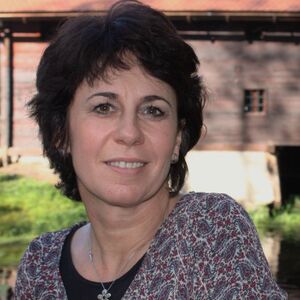
Vesna Radovanovič (1962) attended primary and secondary school in Murska Sobota. In 1985 she graduated from the Academy of Education in Ljubljana. She lives in Murska Sobota, works in the youth department of the Regional and Study Library, and is also involved in storytelling for children and adults. Her first book, “When did you die” (“Kdaj ste umrli?”), was published in the framework of the youth writers' meeting The eye of the word (Oko besede), which she is actively involved in organising. She is involved in the local media, presenting books and youth literary projects. She has created a collection of sound recordings - bedtime stories with more than 1000 items on Radio Murski val. Feri Lainšček's thoughts, in her interpretation, have been published on CD in both the literary language and Prekmurje languages. For more than fifteen years, she was the children's and youth literature editor at the Franc-Franc publishing house. She has been awarded the Čop Award, the Slovenian Section of IBBY Award and the Murska Sobota Municipality Award for Cultural Achievement.
-
Vilma Purič

Vilma Purič was born in 1966 in Trieste. She teaches Slovenian at junior and senior high schools in Trieste. She has been writing literary reviews for radio Trst A for several years as a contributor to the Cultural Events program. She advertises literary criticism and essays in the local newspaper. She lives with her husband and children in Repen near Trieste.
-
Vinzenz and Konrad Kreuzer
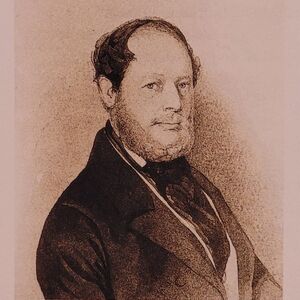
Vinzenz Kreuzer (1809–1888) and Konrad Kreuzer (1810–1861) are important Austrian Biedermeier painters.


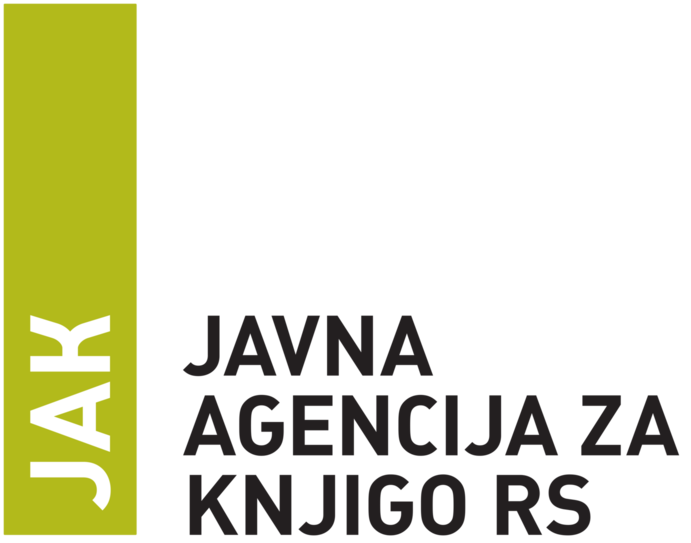
 EN
EN
 RSS
RSS



 Novičnik
Novičnik 
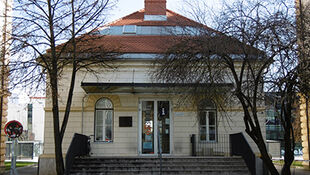
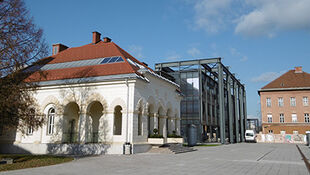
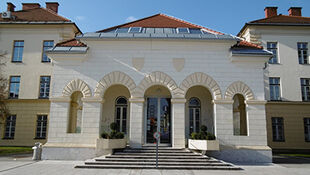




 EN
EN
 RSS
RSS